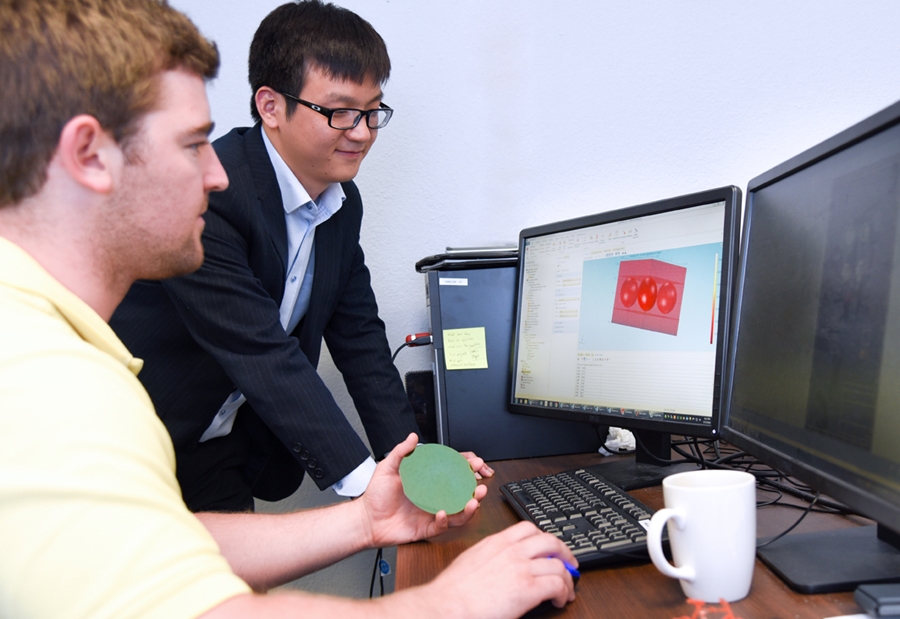Mechanical Engineering Professor Recognized for Additive Manufacturing Research

Wenchao Zhou and graduate student Austin Van Horn are researching ways to improve the speed of 3D printers.
Wenchao Zhou, assistant professor of mechanical engineering and holder of the Twenty-First Century Professorship in Mechanical Engineering, has received the Ralph E. Powe Junior Faculty Enhancement Award from Oak Ridge Associated Universities. This award provides seed money for research by junior faculty members, and it is intended to enrich the research and professional growth of young faculty.
"This award is an honor for Dr. Zhou and for the College of Engineering," said John English, dean of the College of Engineering. "He is doing very promising work in manufacturing, which is not only one of our emerging research areas, but also an important focus for the country as a whole. Dr. Zhou is working in a field that could change the face of manufacturing in the U.S., and it's exciting to see that national organizations such as ORAU recognize the value of his research."
Zhou's research focuses on new technology and applications for additive manufacturing, commonly known as 3D printing. Zhou explained that he believes the future of additive manufacturing is personal fabrication—the use of 3D printing in homes and businesses to create custom products on demand. The biggest challenge to this mainstream use of the technology is the time it takes for current devices to create products. Zhou's lab is researching a new additive manufacturing process that could increase the speed of this technology by a factor of 100 or more.
Zhou plans to use the seed funding from Oak Ridge Associated Universities, which was matched by the U of A, for the use of clean room facilities at the High Density Electronics Center, where he plans to fabricate printer heads.
In addition to investigating new additive manufacturing technology, Zhou is also looking at technology he refers to as "4D printing." This concept involves printing with smart materials that can change and respond to external stimulus; the change these materials can exhibit over time is the fourth dimension of 4D printing. Zhou is working toward technology that could produce humanlike robots printed from soft, responsive materials. These "soft robots" could adjust to stimuli, making them able to handle change and uncertainty more easily than traditional robots.
Contacts
Camilla Shumaker, director of communications
College of Engineering
479-575-5697,
camillas@uark.edu